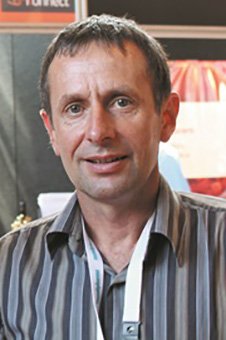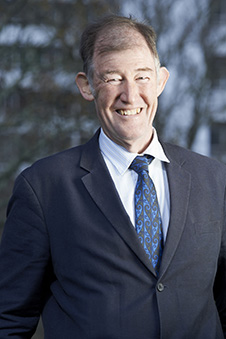Rural health academics support calls from other rural leaders for more localised reporting of Covid-19 test results to help rural healthcare providers better care for their communities.

Associate Professor Garry Nixon.
University of Otago Associate Dean Rural Garry Nixon and University of Waikato Professor of Population Health Ross Lawrenson are concerned the current system of reporting Covid-19 test results does not enable a clear picture for rural health providers. Instead, they advocate for a move to reporting cases by district council areas as a minimum.
Covid-19 cases are currently being reported by District Health Board areas. Some DHBs, particularly those with significant rural populations cover large geographical areas.
Associate Professor Nixon, a rural hospital specialist at Dunstan Hospital in Clyde, explains that unless a cluster is reported, it is not possible to tell in which part of these large areas cases are concentrated.
“This means a rural hospital or service has no way of knowing how many patients in their area are likely to deteriorate and need further medical care in coming days,” he says.
“The pandemic demands a response at all levels, including by rural and remote communities and their services. Good data will support this response.”
Professor Lawrenson, a public health physician and board member of the New Zealand Rural General Practice Network, says they would prefer that results were reported on a regional level within DHBs.
“Reporting data on Covid-19 cases for smaller regions will make it easier for communities to understand their risk and for rural health providers and other community services to plan their response to the pandemic.”
Some DHBs have started to report cases by district council area, a move the pair is in favour of.

Professor Ross Lawrenson.
“While not perfect, this is a considerable improvement on reporting by DHB area and we would encourage the Ministry of Health to start reporting cases by district council areas for all of New Zealand and to consider this as the basis for community testing,” Professor Lawrenson says.
“It will also be important when we want to move to community-based testing that we have a clear idea as to the way we define 'communities'.
“District councils are still large areas and reporting at this level will not risk concerns of privacy.”
Associate Professor Nixon says New Zealand lacks a recognised system for reporting rural health data – something both he and Professor Lawrenson have highlighted in research in recent years.
“The current pandemic highlights this deficiency in the national health intelligence system.”
For more information, contact
Professor Ross Lawrenson
Professor of Population Health
University of Waikato
Email rlawrens@waikato.ac.nz
Associate Professor Garry Nixon
Associate Dean Rural
University of Otago
Email garry.nixon@otago.ac.nz
Liane Topham-Kindley
Senior Communications Adviser
University of Otago
Mob +64 21 279 9065
Email liane.topham-kindley@otago.ac.nz
FIND an Otago Expert
Use our Media Expertise Database to find an Otago researcher for media comment.
